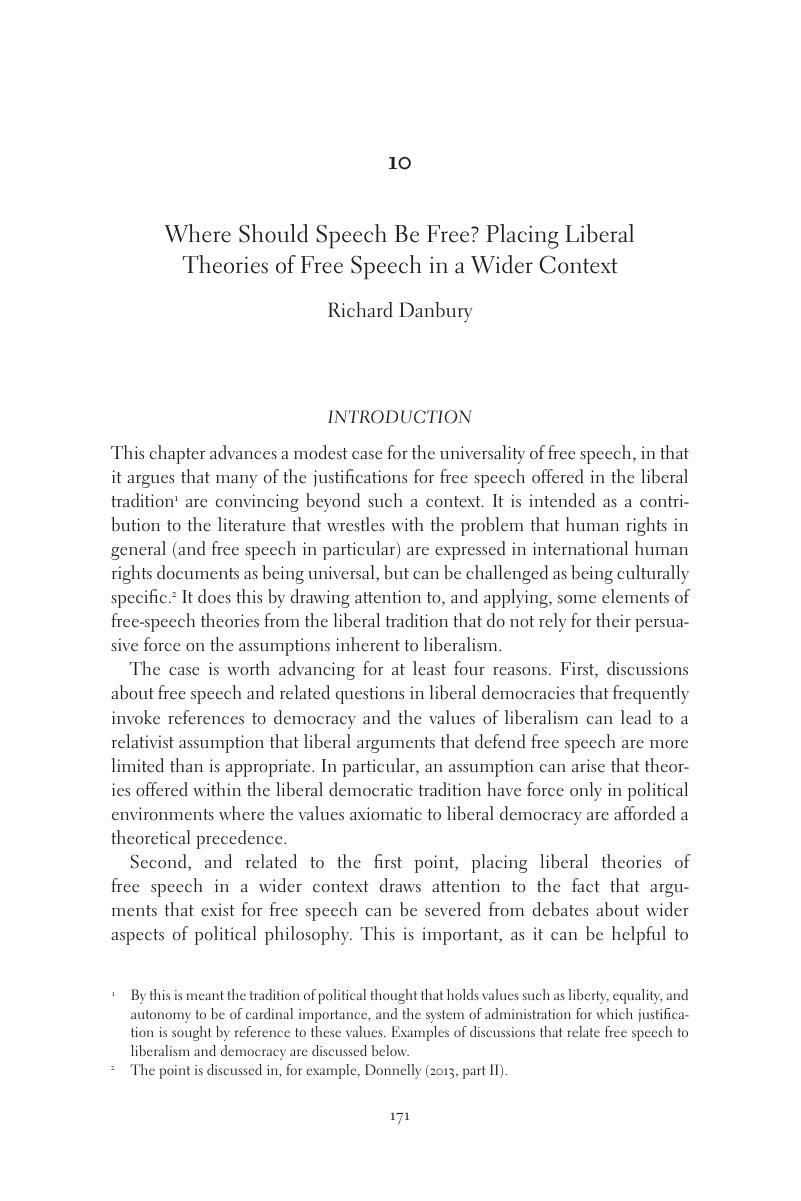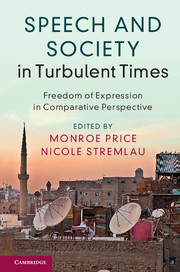Book contents
- Speech and Society in Turbulent Times
- Speech and Society in Turbulent Times
- Copyright page
- Contents
- Contributors
- Foreword
- 1 Introduction: Speech and Society in Comparative Perspective
- Part I Revisiting International Norms
- Part II Dewesternizing Tendencies
- Part III The West as Progenitor and Modifier of Concepts of Free Expression
- 10 Where Should Speech Be Free? Placing Liberal Theories of Free Speech in a Wider Context
- 11 The History, Philosophy, and Law of Free Expression in the United States: Implications for the Digital Age
- 12 The Evolution of a Russian Concept of Free Speech
- Part IV Technologies and Ideologies in Turbulent Times
- Part V Conclusion
- Index
- References
10 - Where Should Speech Be Free? Placing Liberal Theories of Free Speech in a Wider Context
from Part III - The West as Progenitor and Modifier of Concepts of Free Expression
Published online by Cambridge University Press: 17 November 2017
- Speech and Society in Turbulent Times
- Speech and Society in Turbulent Times
- Copyright page
- Contents
- Contributors
- Foreword
- 1 Introduction: Speech and Society in Comparative Perspective
- Part I Revisiting International Norms
- Part II Dewesternizing Tendencies
- Part III The West as Progenitor and Modifier of Concepts of Free Expression
- 10 Where Should Speech Be Free? Placing Liberal Theories of Free Speech in a Wider Context
- 11 The History, Philosophy, and Law of Free Expression in the United States: Implications for the Digital Age
- 12 The Evolution of a Russian Concept of Free Speech
- Part IV Technologies and Ideologies in Turbulent Times
- Part V Conclusion
- Index
- References
Summary

- Type
- Chapter
- Information
- Speech and Society in Turbulent TimesFreedom of Expression in Comparative Perspective, pp. 171 - 191Publisher: Cambridge University PressPrint publication year: 2017



